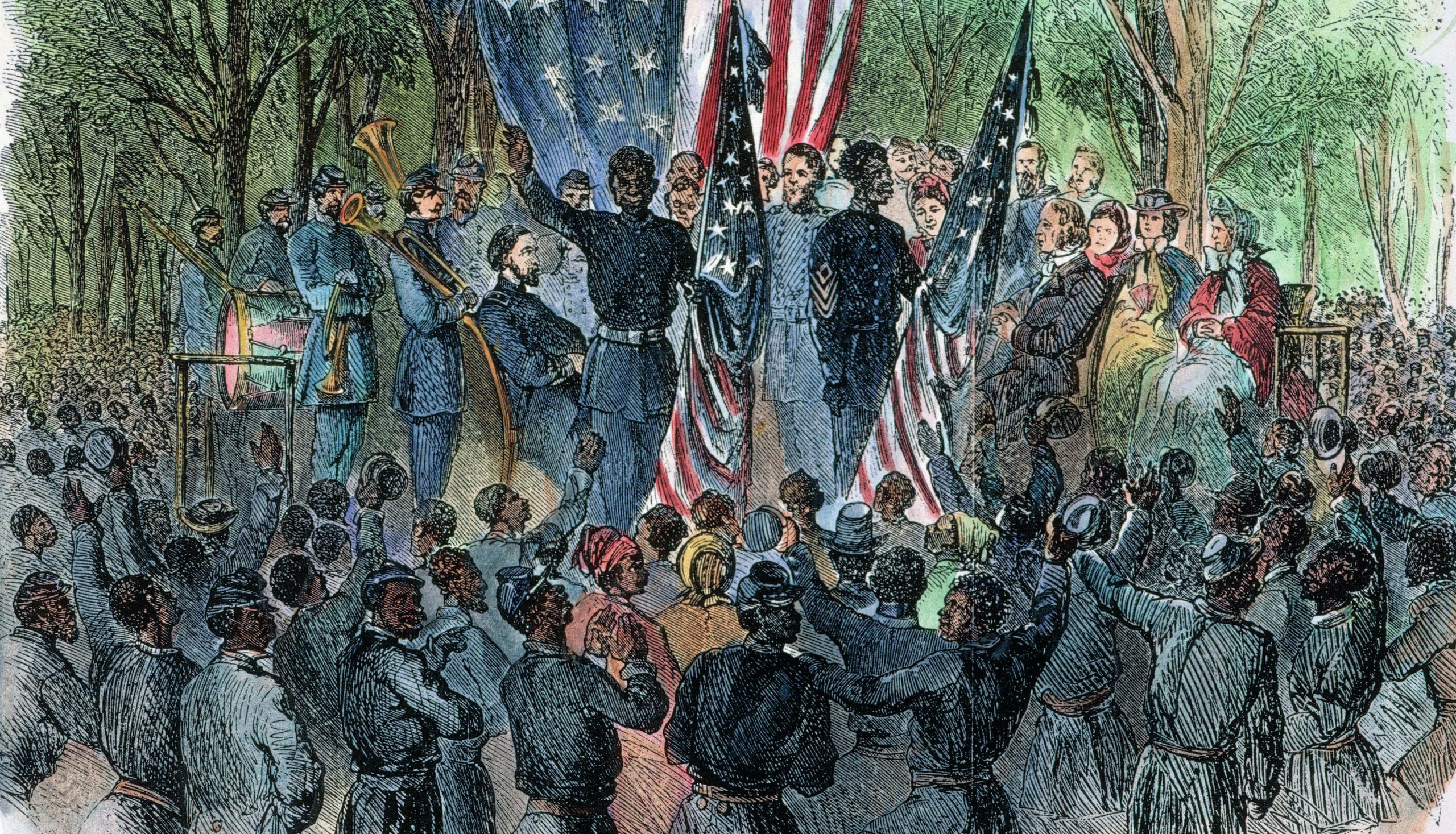
President Abraham Lincoln issued the Emancipation Proclamation on 1 January 1863. It declared free ‘all persons held as slaves within any State or designated part of a State, the people whereof shall then be in rebellion against the United States’. In fact, it actually freed very few people.
The proclamation only applied to enslaved people in the southern Confederate States, where Lincoln’s power did not extend. The Confederate States thought of themselves as an independent nation and had neither cause nor desire to free their slaves.
Your organisation does not have access to this article.
Sign up today to give your students the edge they need to achieve their best grades with subject expertise
Subscribe




